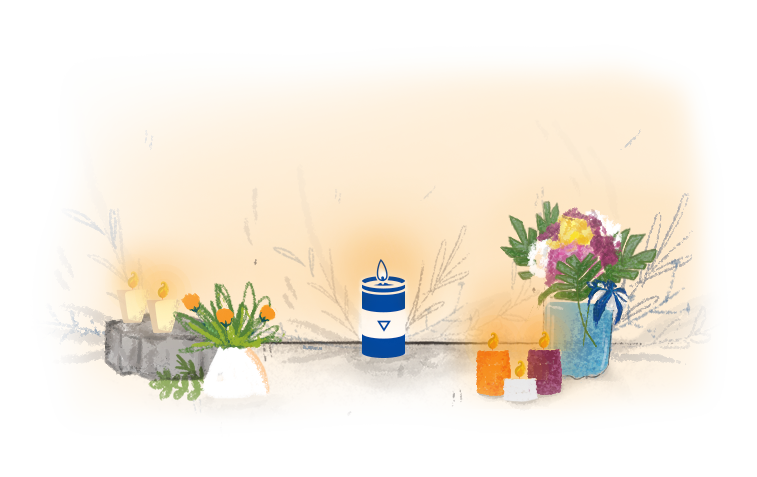
Álvaro Manuel Conrado Dávila
15 Years Old - Student

Álvaro Manuel Conrado Dávila
“It hurts to breathe…”
Murdered in Managua on April 20th, 2018
Álvaro Manuel Conrado Dávila was a student at the Loyola High School. He was in the 10th grade and was known for his academic excellence, his demonstrated solidarity towards his classmates, and his participation in sports and cultural activities. He was a member of the track team and won three medals in the 200 and 400-meter races. He had a great deal of stamina, but because he was small the older boys usually won. He would often win second place, but his teacher told him not to worry because when he competed with students his own age he would be ready to win. He also liked the guitar and took guitar classes during the week, and on Saturdays he took English classes.
He and his dad, Álvaro José Conrado Avendaño, made plans together. “Because of his good grades, we came up with a plan. When he finished high school he would apply for a scholarship to study at the UCA (the Central American University). He was considering accounting because he was good at math, but he also liked physics and he didn’t have any problems with chemistry either,” said his dad. His mother, Lizeth Dávila Orozco, recalls that Álvaro had two options: accounting, because he was great at math, or law school, because he defended what he believed in and all that was just. “He always wanted to be right. No one beat him in debates. His friends said he should study law because he was so talkative and such a good debater.”
Lizeth confirms Alvaro’s dreams, which were to become a professional in whatever career he chose, help his family, and study in order to make a name for himself. He encouraged his sister to study so she would get ahead.
In his free time he rode his skateboard and he enjoyed watching Japanese anime videos. He was a Harry Potter fan and he knew the six movies by heart, since he watched them over and over again. He also liked to play video games.
His dad described him as “a serious boy who could almost seem distant, at times, but when he trusted someone, he was fun and joked around. He was very talkative. At home, he was the one who was always talking. When he came home from school he would tell me what had happened in school in detail, i.e., who he’d spoken with, which girl he liked, what the teacher had told him, etc., and everyday was it was the same. Later he would tell his grandmother the same story all over again. Now he is not here and there is a huge void.”
According to his mother, Álvaro was “a very humble boy. He wasn’t demanding and he accepted and adjusted to what we were able to give him. He was concerned about his friends. He was happy and showed solidarity to his friends, and when they were sad he cheered them up. He was talkative. His teacher said he was a mass motivator because he talked and debated everything that was discussed in class. He defended his ideals and he defended the weak. He also helped classmates that were struggling so they would do better in class. He became angry when he saw the elderly being beaten on TV, and he asked why this was happening. He thought of his grandmother and he got very upset,” recalls his mother.

When the repression began on April 19th, Alvaro asked why the students were being left on their own. “Why not go to defend them?” “I suggested that he not go out to the streets because things were dangerous, but on April 20th he got up early and went to get his childhood friends and encouraged them to go with him to the protest. Only one of his friends went with him. Since he had just turned 15 he had some money in his wallet, so he went to buy water for the students at the Engineering University (UNI) who were protesting,” she added.
Lizeth believes that her son did not foresee the danger and when the students from the UNI attempted to move to the Cathedral, a sniper shot him from above. They put him on an improvised stretcher to move him out of the area. A vehicle picked him up and took him to the Cruz Azul Hospital but there were orders to not provide medical care to protestors, so they denied him entry. They then took him to the Bautista Hospital where he was immediately admitted and sent to surgery, but it was too late to save his life.
We are waiting for justice. We demand to know the truth, and demand justice. This crime cannot be left in impunity. They have taken away what is most valuable to us—our children. Those who gave the order to shoot should pay for their crime. My son was denied medical care. Those who closed the hospital doors to him must also pay,” demands Alvaro Conrado’s mother.
His parents want Alvarito to be remembered as a boy with deep values, who protected the weak, who demonstrated solidarity and defended his ideals. A child who wanted a better future for his country. He wanted a free Nicaragua, one without a dictatorship. Only days before his death he’d written on his Facebook page: “We are Nicaragua, we are one. Our flag is stained with the blood of sisters and brothers, we are Nicaraguan and they will never beat us.
I want to know more